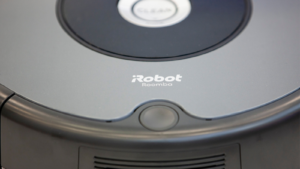Meanwhile, a handful of robotics innovators are toiling behind the scenes to kickstart a renaissance across multiple fields. Companies like Monumental Labs use robotics to dream of mass-scaled classical structures and sculptures, while Machina Labs does the same for blacksmithing and metalworks.
Just one problem for retail investors. Most, if not all, of the most innovative small robotics companies are private. This lack of access makes investing in the top future robotics firms tough, even as solid ETFs like the iShares Robotics and Artificial Intelligence Multisector ETF (NYSEARCA:IRBO) help bridge the gap.
Still, if you aren’t interested in automating your robotics stock holdings (pun intended), these three publicly-traded robotics stocks are some of the best in class. They range the market capitalization spectrum, so you get large-cap stability while retaining exposure to small-cap upside potential.
Intuitive Surgical (ISRG)

Intuitive Surgical (NASDAQ:ISRG) easily tops my list of best robotics stocks to buy for a few key reasons. First, and most important from a portfolio perspective, is its sheer size and influence. With a market cap of just under $140 billion, Intuitive Surgical is a proud member of both the S&P 500 and NASDAQ-100. This means the stock is here to stay and avoids many of the pitfalls associated with more speculative investments. At the same time, Intuitive Surgical maintains the nimbleness and innovation expected from a much smaller firm.
Just last week, Intuitive Surgical announced FDA approval of the latest iteration of its da Vinci surgical robotics platform, which reduces overall procedure invasiveness and improves patient outcomes. The new model, cleverly dubbed da Vinci 5, includes advanced haptic feedback and sensing to help surgeons better navigate delicate tissue alongside improved imagery and accuracy tweaks.
Intuitive’s last earnings report was stellar and included significant global procedure rate and placement increases alongside more standard financial metrics like its 30% jump in earnings per share. Ultimately, Intuitive blends big-stock stability with small-stock adaptability, making it an easy choice for a top robotics stock pick.
Symbotic (SYM)

On the mid-cap side of the equation, Symbotic (NASDAQ:SYM) is changing the way major companies €”including Walmart (NYSE:WMT) and Target (NYSE:TGT) €”manage warehouse operations. Specifically, Symbotic leverages AI to organize and orchestrate warehouse robotics platforms to select, pack and ship goods faster and more efficiently than legacy processes while improving safety and saving companies a good chunk of change. But, though big-name brands may make up its core constituency today, Symbotic’s pivot toward greater access is what could send the robotics stock stratospheric.
The company is developing a concept to bring warehouse automation and robotics to small- and medium-sized businesses (SMBs) who otherwise can’t afford the efficiencies major players like Walmart and Target easily purchase. Symbotic targets multi-user warehouse complexes. This effectively integrates with the building itself as part of a leasing incentive rather than selling directly to SMBs. Big-name brands are a definite cash cow. However, the SMB market is huge and mostly untapped €”a successful pivot toward this smaller-scale segment could turn into a flywheel that effectively prints cash for Symbotic for a long time to come.
iRobot (IRBT)

Finally, on the small-cap side of the equation, well-known robotics stock iRobot Corp (NASDAQ:IRBT) could be the comeback story of the century. After a planned Amazon (NASDAQ:AMZN) merger failed to materialize, IRBT shares saw record short interest that pushed per-share pricing down more than 75% since Jan. 1. But is iRobot truly the loser that its chart suggests, or is it oversold on sour sentiment that’s sure to rebound?
If nothing else, Amazon’s interest in iRobot came not from vacuum sales but a desire to snag top-tier tech intellectual property. That IP portfolio hasn’t gone anywhere, and iRobot stands to gain substantially from its patents €”whether as part of standard operations or by seeking an alternate buyout route.
While another M&A doesn’t yet seem to be in the cards, iRobot’s operational outlook is bright despite share pricing concerns. The company’s fourth-quarter reporting included a 26% earnings per share improvement that narrowed its loss from $3.07 during the same period last year. Likewise, the company’s 2024 outlook remains decent, with management projecting a conservative $825 to $865 million revenue range this year. iRobot trades at just 0.29x sales today €”so even if the company meets its low-end target, shares could rapidly reverse course into double-digit territory.
On the date of publication, Jeremy Flint held no positions in the securities mentioned. The opinions expressed in this article are those of the writer, subject to the InvestorPlace.com Publishing Guidelines.
Jeremy Flint, an MBA graduate and skilled finance writer, excels in content strategy for wealth managers and investment funds. Passionate about simplifying complex market concepts, he focuses on fixed-income investing, alternative investments, economic analysis, and the oil, gas, and utilities sectors. Jeremy’s work can also be found at www.jeremyflint.work.
